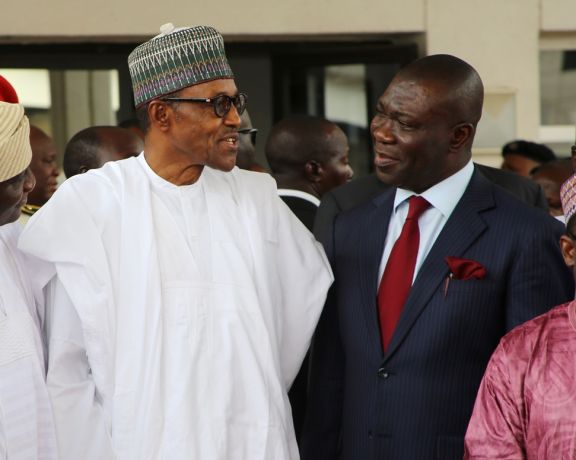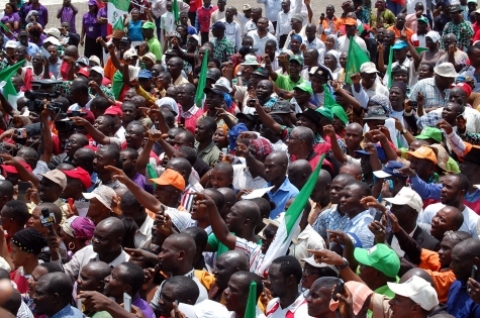The Trade Union Congress (TUC) has told the Federal Government to implement the proposed minimum wage as the present economic realities does no longer favour the present wage.
TheNewsGuru.com reports that Nigeria’s current minimum wage is N18,000. The organised labour is however asking for review of the wage to at least N50,000.
Mr Ahmed Olayinka, Chairman, TUC, Federal Capital Territory (FCT) Chapter said while speaking during an awareness rally on the forthcoming International Workers, Day celebration slated for May 1, in Abuja.
He warned that the workers cannot wait indefinitely for government; adding that in view of the hardship been experienced by Nigerian workers as a result of economic recession, the government should fast-track the implementation of the proposed new minimum wage.
“We in the labour union and the entire Nigerian workers are losing our temper, the government must do something fast, because prices of things have skyrocket in the market.
“The common man cannot afford the basic needs of life and workers now pay double of what they used to buy in the market’’.
He said that the labour union was in support of the anti-corruption drive of President Muhammadu Buhari and would do anything to expose corrupt officials.
Olayinka said that the Labour union had always been in support of good governance, adding that it was aware that corruption was fighting back and it would support the government to tame the tide.
“Corruption is fighting back and we are on the same page with the government, but the only thing we are asking for is a review of the minimum wage because N18, 000.00 can no longer take care of us.”
Also speaking, Comrade Amaechi Lawrence, Chairman FCT Chapter, Nigeria Labour Congress said that the union embarked on a road show to sensitise Nigerians on the workers day celebration
He urged Nigerians workers, including market women and men to come out on the May Day to celebrate workers, adding that those in the FCT should converge on the Eagle square.
Lawrence said that the NLC would continue to sensitise Nigerians against corruption, while calling on the government to quickly review workers wage because the N18, 000.00 minimum wage was grossly inadequate.
Comrade James Imoyera, Assistant General Secretary, NLC urged Nigerian workers to come out en-mass to celebrate workers day.
He said that workers needed to put the country on the path of progress, adding that Nigerian workers had been agitating for a review of minimum wage because they were the one creating the wealth.
TheNewsGuru.com reports that former President Goodluck Jonathan signed the N18,000 National Minimum Wage Bill into law on March 6, 2011.
The new wage law states that once an employer in the public or private sector has a workforce of about 50 persons, he or she is bound by the law to pay a minimum wage of N18,000.
The signing of the law increased the national minimum wage across the country from N7, 500 to N18,000 per month.
NAN

